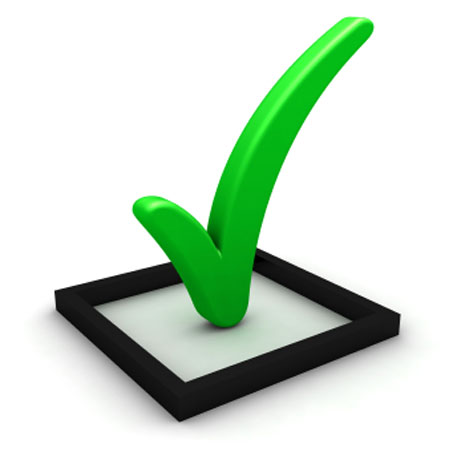How strong is your financial life? Find out by seeing how many of the following items you have in place — go through and check off the ones you already have.

[] Written Goals – Writing your financial goals will provide clarity and direction for your entire financial plan.
[] Net Worth Analysis – Your net worth is the difference between the total value of your assets and the total balance of your debt.
[] Monthly Budget – This document outlines your expenses and details how you plan to allocate your income to your expenses, saving plans, and avenues for giving over the next month. It should be updated monthly, as your circumstances may change from month to month.
[] Will or Estate Plan – Even if you don’t have any children or many assets, not having a will upon death would add unnecessary burden to your loved ones as the courts would decide who would receive your property and take guardianship of your children.
[] Debt Elimination Plan – If you have any kind of debt, then you need a plan to get rid of it; use whatever works for you and stick to it.
[] Emergency Savings – A major obstacle that has the potential to throw your financial plan off course and prevent you from reaching your goals is an unexpected emergency. If you have any type of non-mortgage debt, then build a starter emergency fund of $1,000 to $5,000. If you don’t have any non-mortgage debt, then build this up to 3-6 months of expenses.
[] Retirement Savings Plan – A retirement plan could include participating in a 401(k) plan at work, contributing to a Roth or traditional IRA, and additional investments in a separate brokerage account.
[] College Savings Plan – Once you have paid off your non-mortgage debt and have a plan for funding your retirement, your next focus should be on saving for your kids’ college expenses.
[] Insurance – Of course, there are many types of insurance, but which ones suit your situation depend on what you have going on. You definitely need health insurance, and if you drive then you need auto insurance. You really ought to have homeowner’s or renter’s insurance, depending on whether you own or rent. If you have a mortgage or a family, you might want life insurance. If you are self employed, you also need some form of insurance for that too.
Check Your Financial Life
Don’t worry if you don’t yet have everything listed above — most people don’t. Hopefully, this checklist can make it easier for you to get started on a financial plan; set a deadline for checking off whatever you might be missing, and you’ll be on your way.
Readers, how many of the items in the checklist do you already have?
Jackie Cohen is an award winning financial journalist turned turned financial advisor obsessed with climate change risk, data and business. Jackie holds a B.A. Degree from Macalester College and an M.A. in English from Claremont Graduate University.
I have maybe four or five of those – guess I gotta get my act together.
This year, my focus is on forming habits. I read the power of habits book and have since been applying the principles in various part of my life. I want to focus on tracking my spending, so I can see the full picture regarding where all the money I am spending is going and why I don’t have money left over at the end of the month. My goal is to do this everyday for 90 day and see the trends that pop-up. I am just done with feeling all this anxiety about my budget. I have a budget but can’t tell where the money goes because I am spending on things I feel I need but are not budgeted for. Hopefully this helps. Great article and tips.